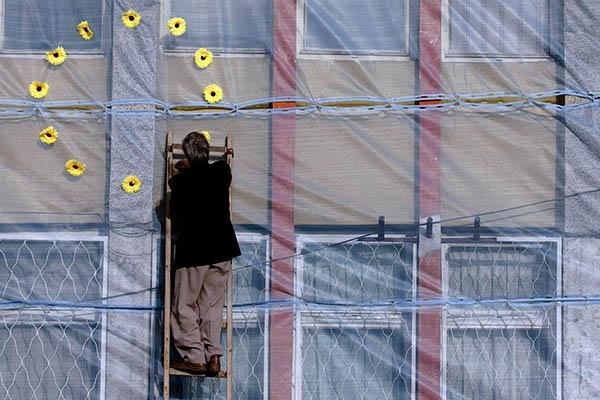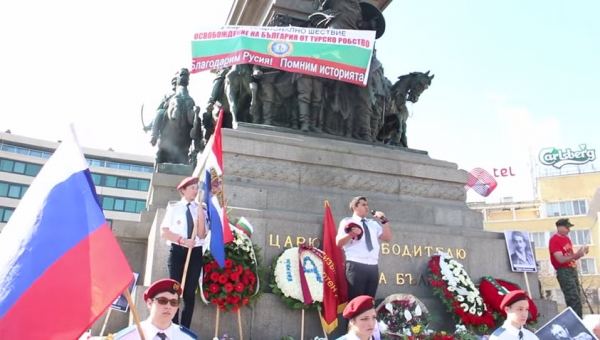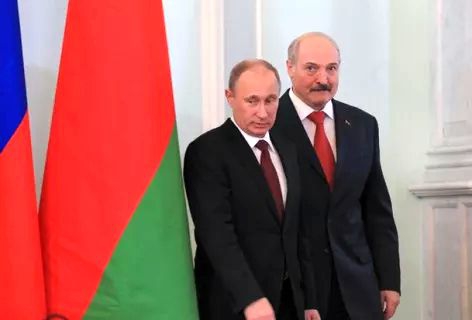
In Bulgaria is coming to a kind of jubilee. 1 January 2017 will be 10 years from the date of official accession to the European Union. With this event many Bulgarians linked the great hopes for change for the better. New year’s eve 2007 in Sofia was filled with euphoria: the night sky was illuminated by floodlights on the streets and squares were held concerts of popular singers and musicians, the audience cheered and hugged each other. Soon, all of them had to be convinced that EU membership is not a panacea for all ills. Why today many Bulgarians feel betrayed — I understand”.<url>.
The miracle of Bulgarian
At the beginning of life in the large European family business many Bulgarians, that is, going uphill. All statistical records of the country showed high growth rates. There were several reasons. For example, the government actively sold the new EU partners, the factories and infrastructure. The money from privatization accounted for as investments. The calculation was obvious: the new owners will restart the production. But the purchasers, with rare exceptions, to invest in the modernization of the Bulgarian industry in no hurry. As a result, many businesses are closed still. Partly because of the global crisis burst in 2008 and forced investors to adjust their plans. But more popular (and plausible) another explanation: sparingly and conserve the enterprises in Bulgaria, European businessmen just removed the competition.
Optimistic expectations were associated with the development of resorts. Some Bulgarians were lucky: in the 1990s the country was conducted, as then wrote, “hard restitution to the former owners and their descendants to return the property, land and property nationalized during the Soviet years. The winners were those whose lands are located in resort areas and on the black sea coast.
The land was sold to build hotels and residential complexes. After the lifting in 2012 of a ban on the sale of real estate to foreigners apartments in Bulgaria gladly bought not only Russians, but also Germans, and Scandinavians, and French. For small by the standards of Western Europe the money they receive is quite a decent property near the sea. Bulgarian authorities said if not for the miracle of development, about the unprecedented prosperity of the country. At the same time somehow had missed the obvious fact that the entire tourism infrastructure is involved only in the holiday season, and the rest of the time idle.
The miracle turns
I must say that the formal accession of Bulgaria to the EU was originally fitted with multiple conditions who had not only Brussels, but also, for example, London. The UK has insisted that the Bulgarian citizens will be able to enter the European labour market only seven years after the country’s accession to the Union. In fact, it was banned in other countries, which was withdrawn only on 1 January 2014. However, after a seven-year deferral of the countries of “old Europe” was not happy with the flow of cheap labour from Bulgaria. Bulgarian President Rosen Plevneliev in his new year address to the nation tried to allay the fears of neighbours in the European Union, said that his fellow citizens are looking for a decent job, income and justice at home, and do not seek to buy a one way ticket and leave for permanent residence in the more developed countries.
But the President clearly was cunning — employment at home may not every Bulgarian: the official unemployment rate for 2015 was 9.1 percent. Among young people this figure is much higher, different sources have estimated it at 20 to 29 percent.
In addition, the data do not include people with partial or seasonal employment. In the end, able-bodied citizens of Bulgaria forced to go to work abroad. In recent years in search of a better life left the country about two million people (the total population of Bulgaria — seven million), and the remaining became a popular joke: “In Bulgaria there are two ways out of the crisis, terminal 1 and terminal 2”.
The problem of escape of the workforce acquired another dimension. Leave not only laborers, but also “white collar”. This is particularly noticeable in health care — many doctors and the average medical qualified staff prefer to work abroad where they are paid two to three times more than at home. And local hospitals and clinics are experiencing a severe staff shortage.
The deep crisis is well known to the citizens of the Union of Bulgarian agriculture. The death sentence was passed by the cheap fruit and vegetables from neighbouring Greece and other EU countries. Small companies in this segment to compete with large and well-equipped Western farmers almost impossible.

Bulgarian farmers
Photo: Reuters
While in Bulgaria there are large grain producers receiving subsidies from Brussels. Organized in cooperatives local selhozfirmy often lease land from owners who pay very decent Bulgarian standards rent. But this is an exception to the General situation, which is pretty sad. Bulgaria and Romania remain the poorest EU countries.
Second-class citizens
In October 2014, the President Rosen Plevneliev in an interview said that the EU is an innovative project in which a large Germany is not very big Bulgaria have equal rights. From a formal point of view, it is, of course. But who is actually in the European Union reigns, Sofia for the past ten years, several times demonstrated. For example, in 2010, when the French authorities expelled EN masse from the country’s Roma citizens of Bulgaria.
As wrote the French press, the operation of deportation was pure production, as holders of EU passports after being sent back could easily return. But the precedent was created for the citizens of Bulgaria have indicated their place in the EU.

A Roma family expelled from France
Photo: Bogdan Cristel / Reuters
The next lesson of Sofia was presented in 2013 at the next discussion of the country’s entry to the Schengen area. The unwillingness of Bulgaria to participate in the agreement explained the high level of corruption, technological backwardness and danger of penetration through its territory of illegal migrants. But it wasn’t just that. Especially sharply objected to Berlin. The then Minister of internal Affairs of Germany Hans-Peter Friedrich recalled that the principle of free movement in the EU implies the possibility of citizens to work and study in any country. However, if it turns out that the person has moved only for the sake of big unemployment benefits, his attitude will be adopted sanctions. In other words, he made it clear that he sees the Bulgarian citizens are freeloaders, not the brothers in the circle of one European family.
The reluctance to feed the partners in the Association of Germans supported the Netherlands and Austria. And the head of the Ministry of interior of Finland päivi räsänen said bluntly that Romania and Bulgaria too hastily admitted to the EU. However, three years later, in April 2016, the official representative of the European Commission (EC) Mina Andreeva said that, in the opinion of the EC, Bulgaria has fulfilled all the conditions required for accession to the Schengen area. According to Andreeva, now the corresponding decision should be taken by member countries of the EU. However, when this happens, the official said.
The Bulgarians are very irritated by the fact that for the sake of joining the EU, they carefully and meticulously fulfilled all the requirements of the European Commission and carried out the required reforms, but the result was stay in the EU much less than expected. “The EU has not brought wealth, which many had hoped, but now nostalgic for the Soviet past”, — said in an interview with the Director of the Bulgarian research company Alpha Research Boryana Dimitrova.








